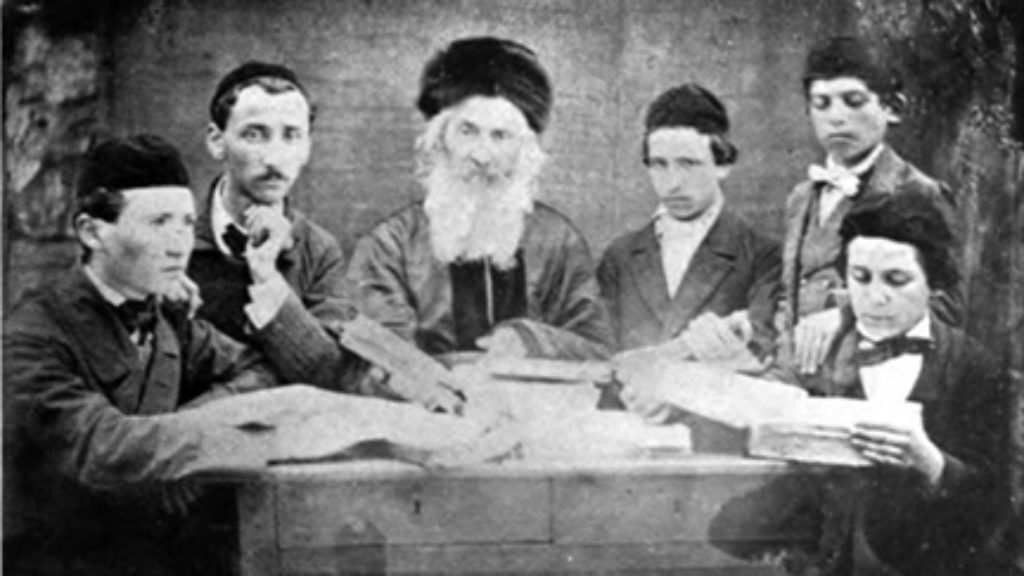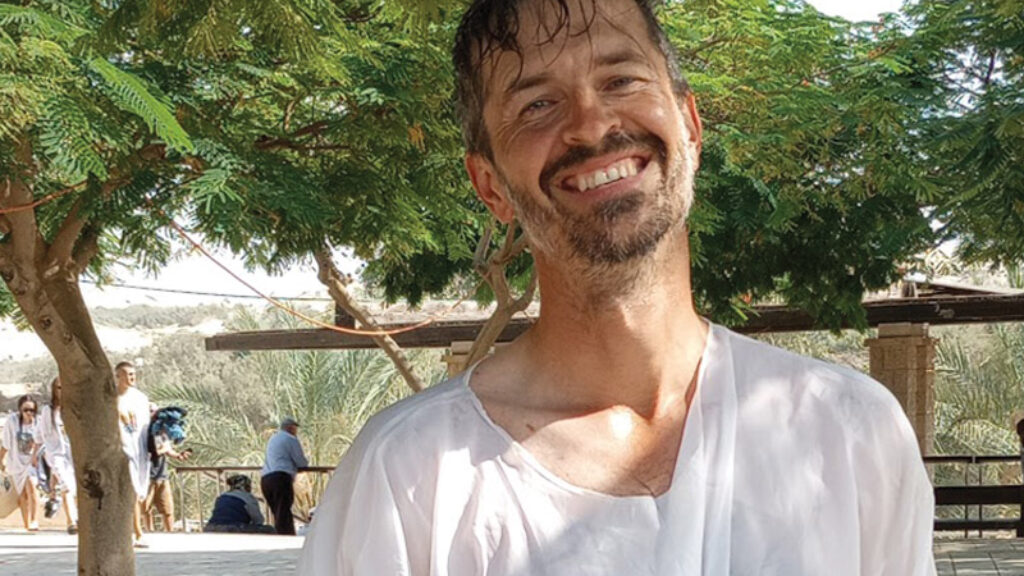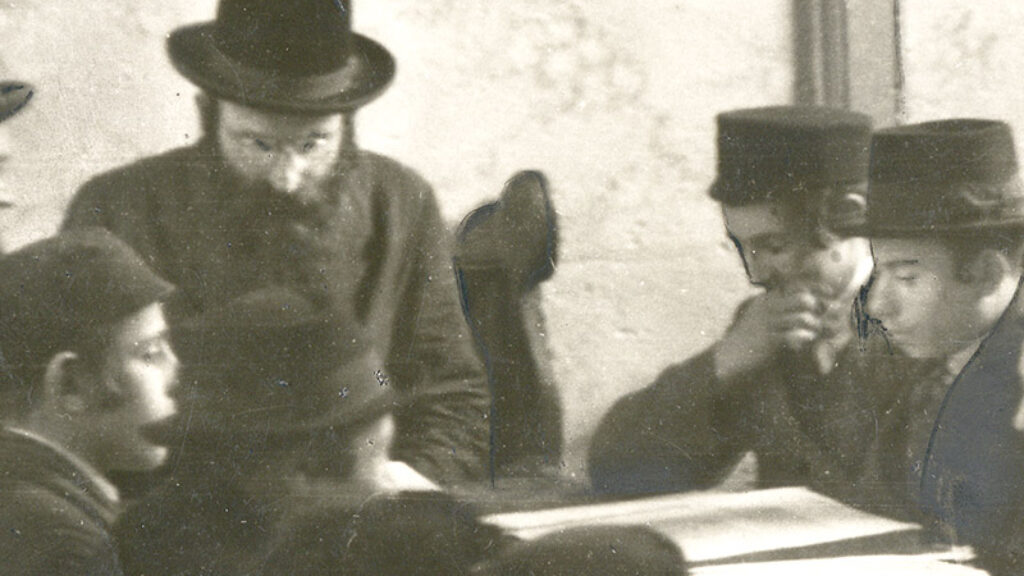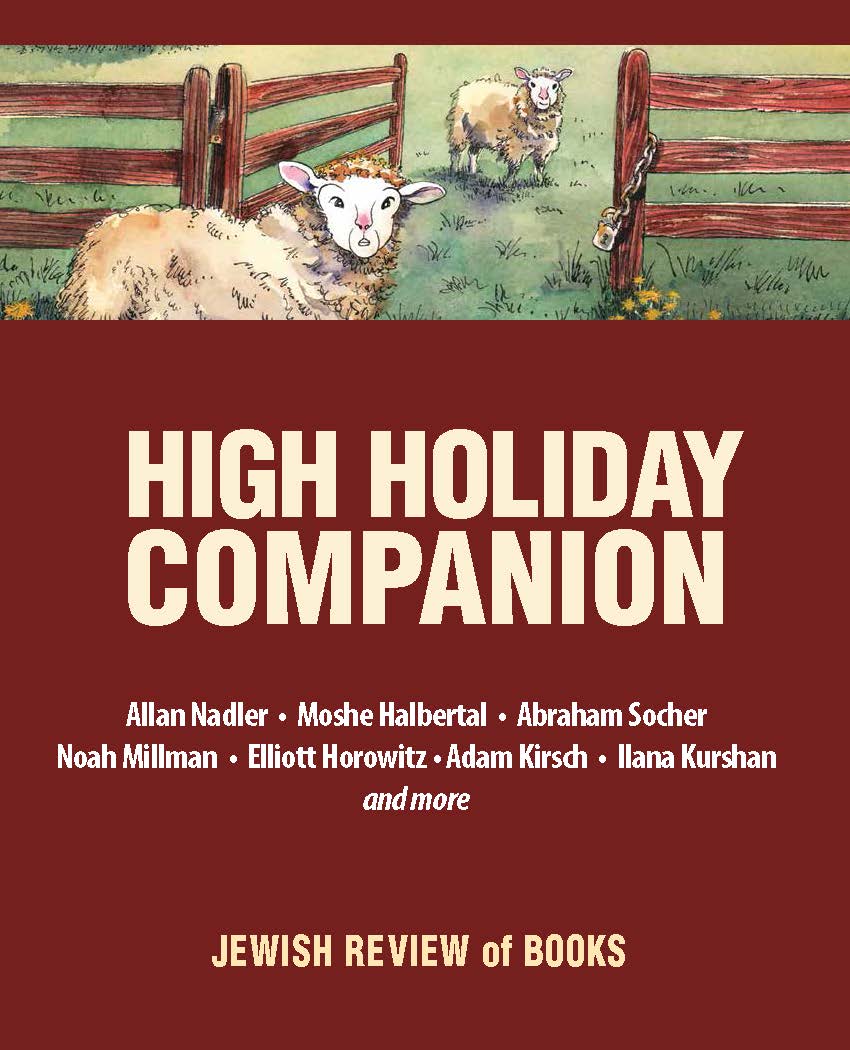Apples, Honey, and Articles
Dear Readers,
Going into the fall holiday season, we make lists both material—seats, apples, honey, sukkah—and spiritual—forgiveness asked for and given, resolutions for improvement and growth, an accounting of where we have been and where we hope to go.
Here at the Jewish Review of Books, we think about where we have been by paging through the stack of the 34 quarterly issues we’ve published to date, along with our growing archive of Web-only articles. We’ve selected 10 favorites that follow the arc of the fall holidays, from Rosh Hashanah and Yom Kippur to Sukkot and Simchat Torah, and created an ebook from them.
You can read them in the JRB app or print them out to take to synagogue (or read in the shade of your sukkah).
We begin with “Notice Posted on the Door of the Kelm Talmud Torah Before the High Holidays,” by the great 19th-century moralist Simcha Zissel Ziv, and end with Ilana Kurshan’s thoughtful review of Shai Held’s recent Torah commentary. In between you’ll find Noah Millman’s eye-opening explanation of what Shakespeare’s King Lear can teach us about the love between Abraham and Isaac, architect Shari Saiman’s essay on a collection of unique structures that reimagine what the festival of booths could look like, Allan Nadler’s ruminations on the surprising links between Leonard Cohen and the reemergence of Old World cantorial art, and half a dozen other pieces by leading scholars and thinkers.
Rereading these articles has helped us get ready for the holidays, and we hope that you will enjoy (and reenjoy) them too.
Best wishes for a sweet new year,
The Editors
Suggested Reading

Brief Kvetches: Notes to a 19th-Century Miracle Worker
One day in the 1860s, a father burst into Rabbi Elijah Guttmacher's study house begging for help. His son's stomach was distended, and he was barking like a dog.

Dead Sea Walking
Shay Rabineau had a simple plan: circle the Dead Sea on foot in two weeks while navigating treacherous heights, marshy flats, military checkpoints, and ad hoc baptisms. What could go wrong?

The Fierce Lust for Contemplation
How did traditional yeshivas become fertile ground for radical literature?

The Homecoming
A 1977 Jerusalem Post article on Harold Pinter's visit to Israel was enticing but short on details. Pinter had just been to the Dead Sea (“hot!”) and Mount Masada (“high!”) and was planning to visit a cousin who lived on a kibbutz.

Comments
You must log in to comment Log In